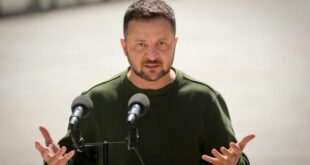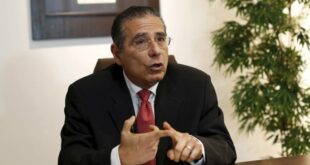Colorado was one of 3 states that made moves to remove Trump from ballot, citing insurrection clause

U.S. Supreme Court says Trump can stay on Colorado ballot
6 hours ago
The U.S. Supreme Court unanimously ruled that former president Donald Trump cannot be removed from the ballot in Colorado or any other state. Colorado had barred Trump from its Republican primary, arguing he incited the Jan. 6 Capitol riot, but the justices said only U.S. Congress has that authority.
The U.S. Supreme Court on Monday restored Donald Trump to this year's presidential primary ballots, rejecting state attempts to hold the Republican former president accountable for his actions leading to the Jan. 6, 2021 Capitol riot.
The justices unanimously ruled that without action from Congress in D.C. first, states cannot invoke a post-Civil War constitutional provision to keep presidential candidates from appearing on ballots.
The opinion was handed down in a case involving Trump's removal from the Colorado primary ballot. It comes a day before Super Tuesday contests in Colorado and 15 other states, where Trump could amass an insurmountable lead over Nikki Haley in Republican delegates in his bid to be the presidential nominee.
Since the Colorado Supreme Court ruling against Trump last December, he has also been barred from primary ballots in Illinois and Maine, though both decisions, along with Colorado's, were on hold pending the outcome of the Supreme Court case.
Trump's case was the first at the Supreme Court dealing with a provision of the 14th Amendment to the U.S. Constitution that was adopted after the Civil War to prevent former officeholders who "engaged in insurrection" from holding office again.

Why legal problems are unlikely to stop Trump
8 hours ago
Throughout his re-election campaign, Donald Trump’s legal problems have done little to slow him down. CBC’s Katie Simpson breaks down four criminal cases the former U.S. president is facing, and explains why convictions likely wouldn’t keep him from returning to the White House.
Colorado's Supreme Court, in a first-of-its-kind ruling, had decided that the provision, Section 3 of the 14th Amendment could be applied to Trump, whom court found incited the Capitol attack.
"To allow Colorado to take a presidential candidate off the ballot under Section 3 would imperil the Framers' vision of "a Federal Government directly responsible to the people," the justices wrote.
Trump posted on his social media network shortly after the decision was released: "BIG WIN FOR AMERICA!!!"
Colorado Secretary of State Jena Griswold expressed disappointment in the court's decision as she acknowledged that "Donald Trump is an eligible candidate on Colorado's 2024 Presidential Primary."
Liberal justices dissent on Congress requirement
The 4-3 Colorado Supreme Court ruling reversed a lower court judge's conclusion that Trump engaged in insurrection by inciting his supporters to violence, but as president, he was not an "officer of the United States" who could be disqualified under the 14th Amendment.
The justices sidestepped the politically fraught issue of insurrection in their opinions Monday. The court held that states may bar candidates from state office.
"But States have no power under the Constitution to enforce Section 3 with respect to federal offices, especially the Presidency," the court wrote.

While all nine justices agreed that Trump should be on the ballot, there was sharp disagreement from the three liberal members of the court and a milder disagreement from conservative Justice Amy Coney Barrett that their colleagues went too far in determining what Congress must do to disqualify someone from federal office.
Justices Sonia Sotomayor, Elena Kagan and Ketanji Brown Jackson said they disagreed with the majority's finding a disqualification for insurrection can only happen when Congress enacts legislation.
"Today, the majority goes beyond the necessities of this case to limit how Section 3 can bar an oath-breaking insurrectionist from becoming President," the three justices wrote in a joint opinion.
Rick Hasen, a law professor at the University of California-Los Angeles, wrote that it's frustratingly unclear what the bounds might be on Congress. Hasen was among those urging the court to settle the issue so there wasn't the risk of Congress rejecting Trump under Section 3 when it counts electoral votes on Jan. 6, 2025.
"We may well have a nasty, nasty post-election period in which Congress tries to disqualify Trump but the Supreme Court says Congress exceeded its powers," he wrote.
Read the court's decision:
(PDF KB)
(Text KB)CBC is not responsible for 3rd party content
Immunity, obstruction decisions loom
It won't be the last word the Supreme Court has on cases involving Trump, and therefore the presidential race. The top court confirmed last week it will consider the question of "whether and if so to what extent does a former president enjoy presidential immunity from criminal prosecution for conduct alleged to involve official acts during his tenure in office."
The court will hear arguments in late April, with a ruling within several weeks of that date.
Trump's lawyers have argued that he should be shielded from prosecution for his effort to reverse President Joe Biden's election victory over him in 2020 because he was president at the time, a sweeping assertion of immunity firmly rejected by lower courts.
The Supreme Court in the coming weeks will also review a charge of obstruction of an official proceeding, pertaining to three people charged in connection with the 2021 Capitol riot. A district judge in Pennsylvania had earlier ruled that prosecutors had stretched the law beyond its scope in one of the applicable cases.
It is possible, though not guaranteed, that a ruling in that case could affect Trump. Among the four counts special counsel Jack Smith has indicted Trump with in a federal election interference case are charges of conspiracy to obstruct an official proceeding, as well as attempt to obstruct an official proceeding.
Trump has argued that all four criminal cases he faces are partisan prosecutions led by overzealous Democratic officials, and that they amount to election interference, although in each case the probes began before he announced his intention in November 2022 to run for president again.
Trump faces a criminal trial in exactly three weeks in New York. He has been accused of falsifying business records to cover up hush-money payments to three people so that allegations of extramarital affairs would not come to light during the 2016 presidential election. Adult film performer Stormy Daniels and former Playboy Playmate of the Year Karen McDougal each have alleged.
With files from CBC News
*****
Credit belongs to : www.cbc.ca
 MaharlikaNews | Canada Leading Online Filipino Newspaper Portal The No. 1 most engaged information website for Filipino – Canadian in Canada. MaharlikaNews.com received almost a quarter a million visitors in 2020.
MaharlikaNews | Canada Leading Online Filipino Newspaper Portal The No. 1 most engaged information website for Filipino – Canadian in Canada. MaharlikaNews.com received almost a quarter a million visitors in 2020.







